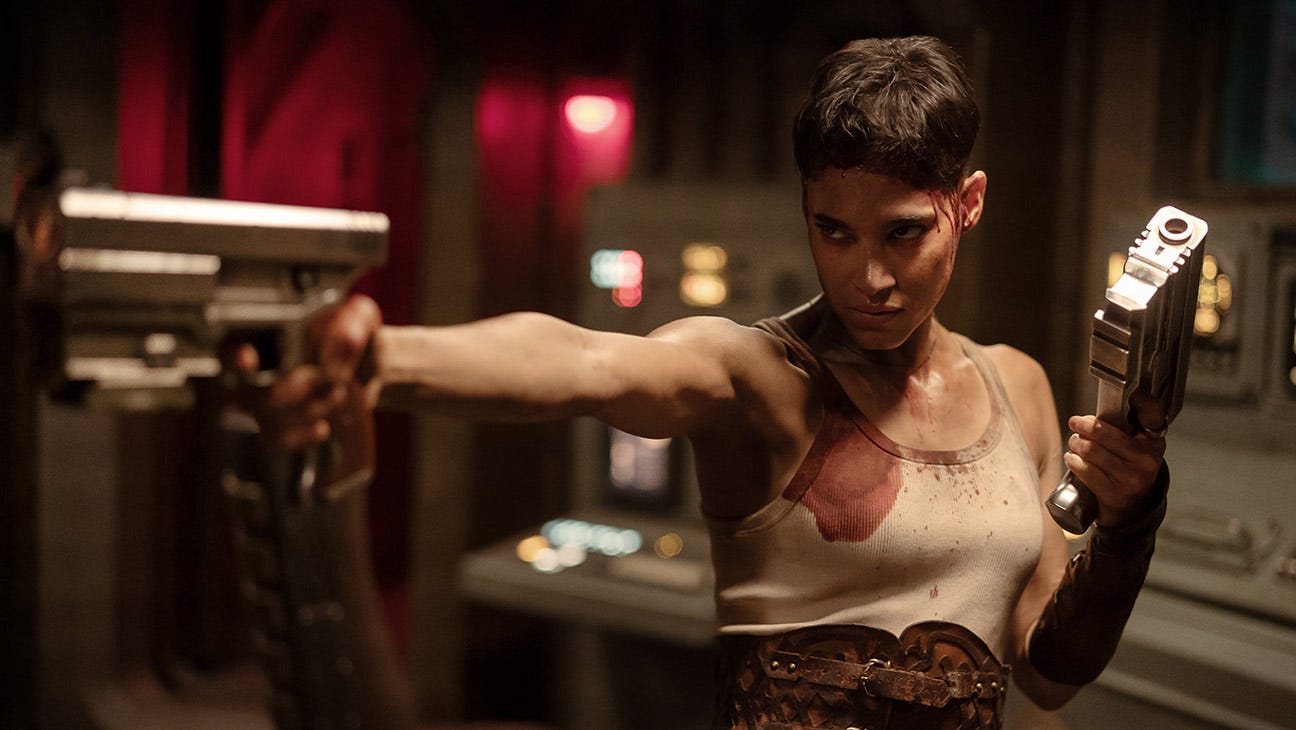'Rebel Moon Part Two' and Zack Snyder’s Obsession With “A Good Death”
The divisive action movie auteur continues his running theme of martyrdom for the greater good.
There’s a troubling theme that runs through the work of filmmaker Zack Snyder… actually, there are several troubling themes that run through the work of filmmaker Zack Snyder… but there’s one troubling theme in particular that I never noticed until I watched his just-released Rebel Moon: Part Two - The Scargiver, the follow-up to December’s Rebel Moon - Part One: A Child of Fire. And that theme is this:
Martyrdom and the value of a “good” death.
Let’s just get this out of the way first: The Scargiver sucks. It has all the problems A Child of Fire had, including, but not limited to, nonsensical plotting, bland performances, generic action scenes, unearned ponderousness and solemnity, and special effects that sometimes seem about a half-step above those in Asylum mockbusters.
Not helping: The Scargiver arrives just weeks after Dune: Part Two, a vastly (vastly, VASTLY) superior movie in the same genre that is also a continuation of a story begun in another film.
Snyder has claimed that Rebel Moon is a deconstruction of Star Wars and the sci-fi/fantasy/adventure sub-genre it spawned. This makes me question if Snyder knows what “deconstruction” means, because Rebel Moon is a deconstruction of Star Wars the way Roger Corman’s Battle Beyond the Stars is a deconstruction of Star Wars: it doesn’t subvert or interrogate the tropes of the form, it just recycles them for a cheap knock-off. Someone more patient than myself could go through the entire movie, scene by scene (if not shot by shot), pointing out all its various glaring flaws, and they’d have enough material to fill a book. I don’t think it’s bad in a way that’s funny or interesting; it’s just bad.
Perhaps it is because I was so bored watching The Scargiver that had my epiphany regarding the overarching connective theme that unites all of Snyder’s work.
The Scargiver is Snyder’s tenth feature-length, live-action film, and all of them - ALL OF THEM!!! - contain at least one major character who sacrifices themselves:
Dawn of the Dead: Multiple characters allow themselves to be killed for the greater good.
300: All 300 of ‘em die fighting for their the Spartans’ cause.
Watchmen: Ozymandias (Matthew Goode) has a plan to unite the world… but it requires killing millions of people. Because he cannot keep this secret to himself, Rorschach (Jackie Earle Haley) allows himself to be killed… but not before he sends out his journal, which contains the whole truth, to the press.
Sucker Punch: For Sweet Pea (Abbie Cornish) to escape the mental asylum in which she has been unfairly imprisoned, another inmate, Babydoll (Emily Browning), must allow herself to be captured and lobotomized.
Man of Steel: Colonel Hardy (Christopher Meloni) and Dr. Hamilton sacrifice themselves to stop the evil Kryptonians. Colonel Hardy even has a recurring line about how “A good death is its own reward.”
Batman v Superman: Superman (Henry Cavill) is killed while subduing a rampaging alien, Doomsday.
Justice League: Dr. Miles Dyson… er… Silas Stone (Joe Morton) allows himself to be melted for reasons I don’t entirely remember but I know help the Justice League somehow (oh, also, his proposed Justice League trilogy would have ended with Batman heroically dying in the big final battle).
Army of the Dead: Multiple characters allow themselves to be killed for the greater good.
Rebel Moon - Part One: A Child of Fire: Darrian Bloodaxe (Ray Fisher) gives his life helping to take down the bad guys.
I won’t give away who takes one for the team in Rebel Moon: Part Two - The Scargiver, but the story is a loose adaptation of Seven Samurai and this is the second half, so. Y’know. You know before the title card appears that some of these people aren’t gonna make it to the closing credits.
I acknowledge that some of the above are adaptations, and that the Dead movies are both zombie films (which tend to use this trope a lot regardless of who the director is). I still believe this speaks to some psychological (and maybe even unconscious) aspect of Snyder as a person, because a) he chooses these projects and b) even the ones that aren’t adaptations or zombie movies find a way to include this identical plot beat. And once you start to think about how much less frequently other notable filmmakers utilize, it becomes readily apparent that Snyder has some sort of obsession.
I mean, imagine if every single Spielberg film ended with one of the main characters taking a bullet for one or more of the other main characters, Saving Private Ryan-style. Every. Single. One. Raiders of the Lost Ark? That scene where Indy threatens to blow up Marion and the Ark ends with him doing exactly that, at Marion’s behest. E.T.? Mom gets whisked off to Guantanamo so Elliott and E.T. can get to safety. Jurassic Park? Jeff Goldblum lets the T-Rex eat him so everyone else can get off the island. Hook?
It would be weird… right?
Snyder’s fascination with martyrdom might feel less icky if he weren’t a Randian who casually quotes Mussolini and gets along with Joe Rogan. In that context, Snyder’s work starts to feel truly militaristic and fascistic. 300, which was Snyder’s breakthrough hit, is about a society of Spartan soldiers who value a “good” death in the name of their cause above all else. Watching The Scargiver, it seems more clear than ever that 300 was not just a depiction of a very particular form of governance - it’s an endorsement.



